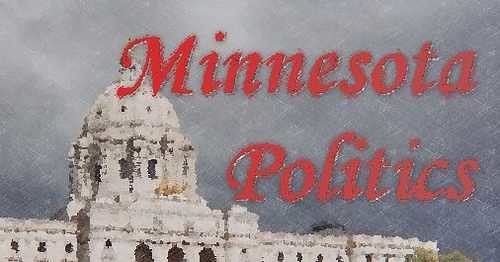As you may expect, I have a lot of thoughts running through my head right now. Extreme disappointment with the presidential results nationwide but contentment with Kerry's vote here, sadness about Patty Wetterling losing, and some excitement about the Minnesota House.
First, the state house results.
I predicted 14 seats, and that's how many new seats they won. Unfortunately, one DFL incumbent lost, Rep. Rebecca Otto from Stillwater, leaving a net gain of 13 seats, for a 68-66 split. One Republican seat is the subject of a recount, though, and if that changes, then there could be the dreaded 67-67 split. It's really too bad that Rep. Otto lost, as she is a very bright, moderate legislator. In any case, Steve Sviggum's future is in doubt, and with a two-vote majority, the Republicans are going to have to be on their toes.
Nationally, I think
this Eric Alterman column pretty much sums it up: there are more of them than us at the moment. I've been thinking a lot about how divided our country is right now.
This isn't going to be an easy issue to resolve. I think there are two camps in America right now, with both camps existing in pretty much self-contained little bubbles. The Bush-supporting camp likes to see things in terms of moral absolutes: America is always great, this is the best country in the world, we have the best healthcare in the world, dead or alive, abortion is always evil, gays are always disgusting, we have to be afraid of terrorists, and so on. There isn't much nuance, or interest in other points of view. This is contrasted with a different view: that the world is gray, that we need balance, that nobody has a monopoly on truth, that there is a little good in the most evil and that there is a little evil in the most good. Basically, it is a viewpoint that realizes diversity and accepts it in a "live and let live" manner.
It would be easy for somebody in my position to call people on the other side "ignorant hicks" or worse, and lots of people do. Just like the other side calls people like me "sinners," "heathens," "godless," "America-haters," and the like. This kind of arguing doesn't accomplish anything, because we don't even share a common language.
Both of these systems can "work." I think it's a mistake to assume that being engaged in the world, seeking knowledge, and trying to understand other points of view are obviously "good" things, because to many people that's not obvious, or even necessary. They can go their entire lives without questioning the stark black-and-white morality and belief system they have, and it works just fine for them. Trying to convince them that they have to tolerate diversity simply because it is "better" is a losing proposition.
I saw that both of these systems can "work," but that's not entirely accurate. The system that Bush believes in, unfortunately, can't work in the long run. You can't run deficits indefinitely. You can't continue to misunderstand your enemies and create more of them forever. You can't cling to static beliefs in the face of a technologically advancing life. You can do it for a while, maybe even a long while, but in the end it fails because it is rigid.
Thus, the task for Democrats is to undertake a paradigm shift, which is just about the hardest thing that you can do. In order to get people to change their belief systems and leave their self-contained bubble, Democrats need to convince people that their way of life simply won't work anymore. Only by explaining that irrational budgeting, or bigotry, or ignoring the realities of foreign policy are harmful, will people change. That is the whole "reframing the debate" issue that many people talk about.
I think that this will happen, and I hope sooner rather than later. But that doesn't change the reality of today. I don't know what to do about that right this moment.
Finally, about the Kerry campaign. In all honesty, he did all he could do. This race wasn't lost because of Howard Dean, or John Edwards, or Ralph Nader, or Rathergate, or anything else. It was lost because there were more "moral values" voters than "tolerate and understand our diverse world" voters at the polls (the mere fact that I can't think of anything better than that unwieldy phrase shows how difficult it can be to change something as significant as a world view). I think Kerry was clearly the better candidate because he was the candidate of my world, as much as Bush is not. But there were not enough voters who thought like me, and Kerry can't be blamed for that.


